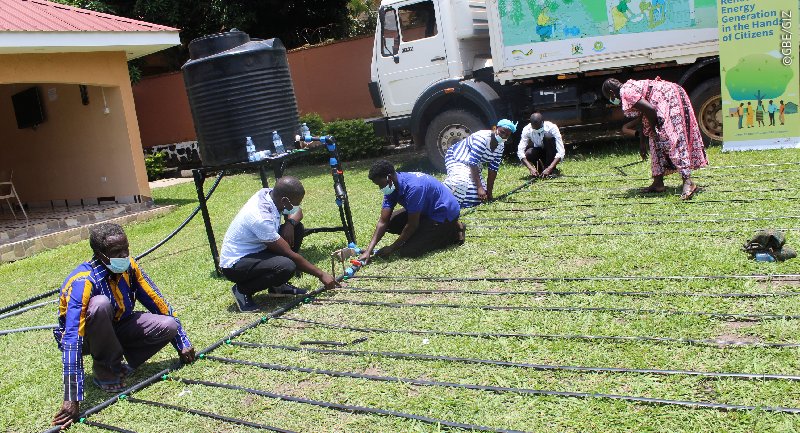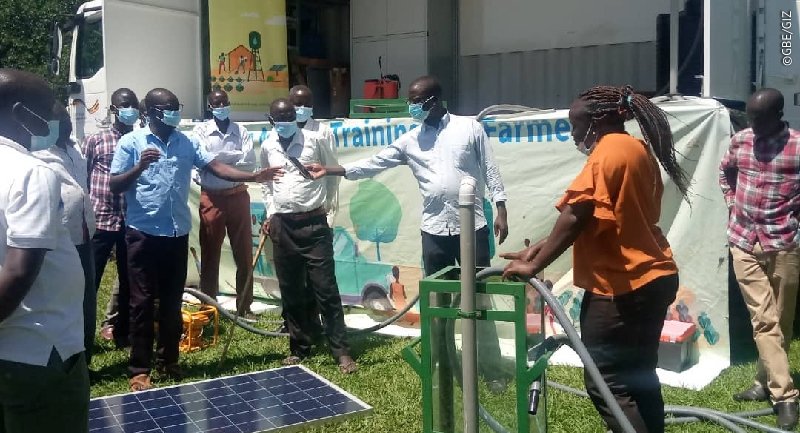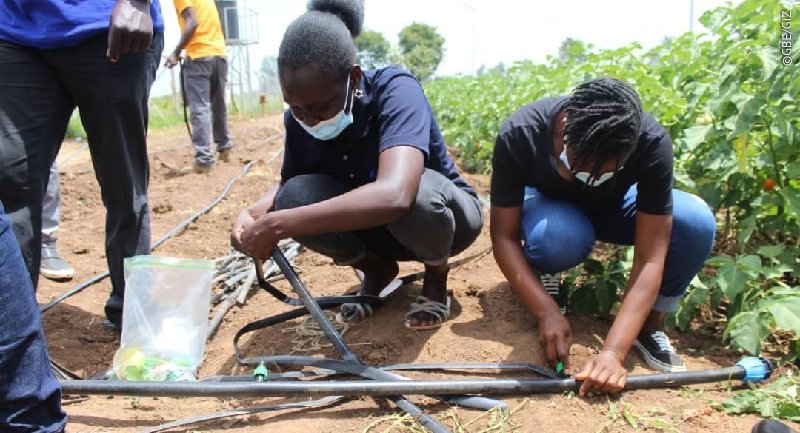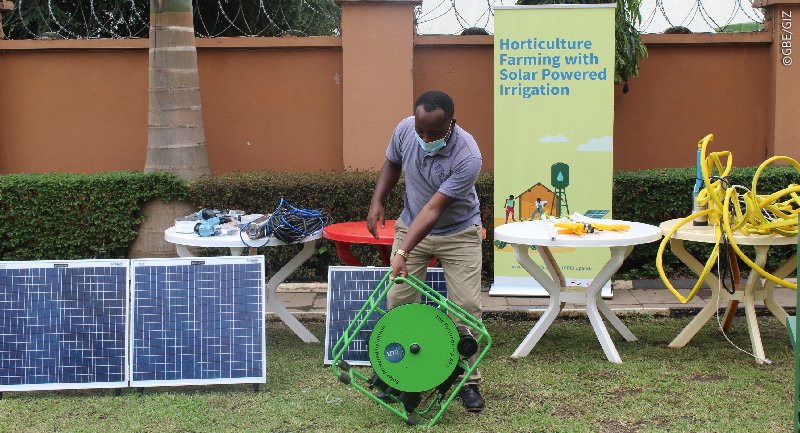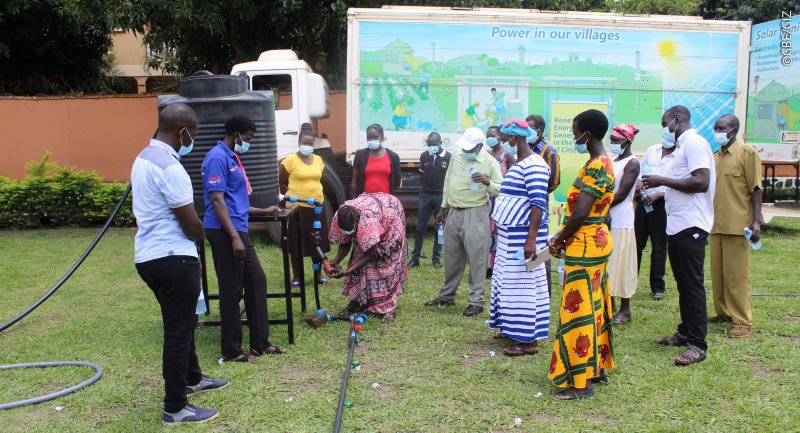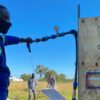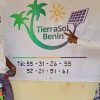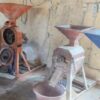Solar Powered Irrigation Systems (SPIS) Trainings for Users, Technicians and Trainers Launched in Northern Uganda
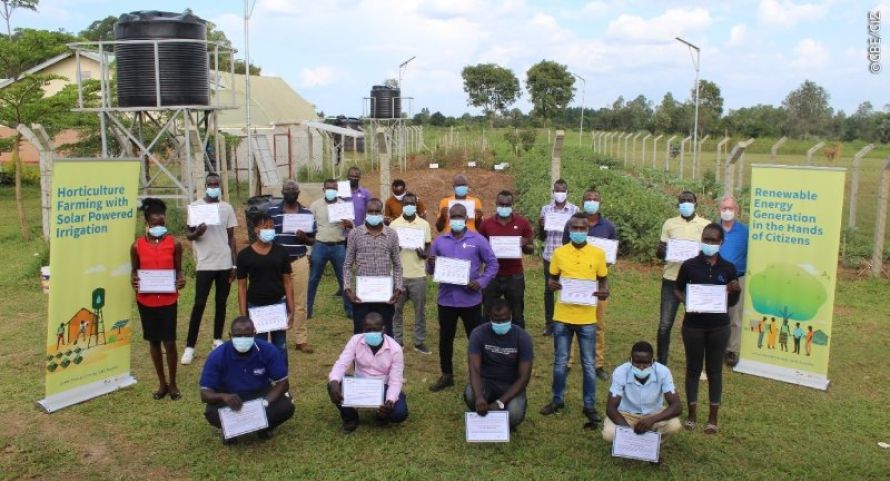
GBE Uganda has launched its trainings on solar powered irrigated horticulture to improve the capacities of farmers, system designers, installers, trainers and extension workers on solar powered irrigation systems. GBE Uganda expects to train at least 120 technicians and 150 users. At least 40 farmers who intend to invest in SPIS will receive tailored expert advice at their farms.
Solar Powered Irrigation Systems (SPIS) are market-ready in Uganda. They have the potential to enable smallholder farmers, farmer groups and cooperatives to increase productivity and generate additional income while making use of clean and sustainable solar energy. “We identified small scale horticulture as a prime business case for SPIS in Uganda because it requires low initial investments, the pumps are readily available in the market, the value chain is simple, and there is a high demand for vegetables in Northern Uganda”, said Santa Akanyo, Agronomy Advisor for Green People´s Energy Uganda (GBE).
Filling the prevailing knowledge- and technical gaps among users, technicians and trainers is the prerequisite for increasing adoption of the technology. For this reason, GBE Uganda has launched its 5-day SPIS trainings which officially started in September 2021. The trainings are conducted at GBE’s demonstration gardens hosted at the Daniel Comboni Vocational Institute and at the GBE office in Gulu. To reach participants all over Northern Uganda including those who cannot travel to one of the demonstration gardens, GBE Uganda is using an innovative training concept. A mobile training unit – a truck that carries training materials such as solar water pumps and drip irrigation equipment – travels to different districts in the Lango, West-Nile and Acholi sub-regions, bringing the 5-day training course directly to the participants.
The training offers participants a full hands-on experience in the planning, designing, installation, and operation of the systems, with a focus on small scale vegetable production. Two training manuals, one for end-user such as farmers, and one for technicians and system designer (in five parts: Part 1, Part 2, Part 3, Part 4, Part 5) have been developed by GBE Uganda specifically for the purpose. Next to farmers and members of agro-cooperatives, participants undergoing the trainings also include District Agricultural Engineers, lecturers from the National Teacher College, teachers of vocational training schools, agricultural advisors and District Extension Workers, leaders of agricultural cooperatives, as well as technicians of private solar companies.
Besides the trainings, GBE Uganda also offers tailored expert advice to farmers who intend to invest in a SPIS of their own. During an on-site visit to their farm, they receive recommendations and practical tips specifically for their sites, including the design of a suitable irrigation system and a return-of-investment calculation to enable them to make the switch to a solar power irrigation system.
Ms. Jackline Akera, a training participant and female vegetable farmer from Gulu was inspired by the SPIS technology and recounted her previous irrigation experience:
“I have been in vegetable production for more than 6 years, and grow mostly cabbages, tomatoes, green peppers, eggplants and onions. I started horticulture farming by using a manual treadle pump to irrigate my crops, but as the years went by it became too tiresome to operate. I switched to a diesel pump, but the operation cost swallowed up my profits. I am very happy to learn about SPIS and be among the 40 beneficiaries chosen to pilot the technology and receive expert advice on my farm.”
With the knowledge provided, GBE Uganda hopes to contribute to an increased uptake of the renewable energy technology, greater adoption by rural farming communities, and a growth in solar irrigated commercial horticulture in Uganda.
